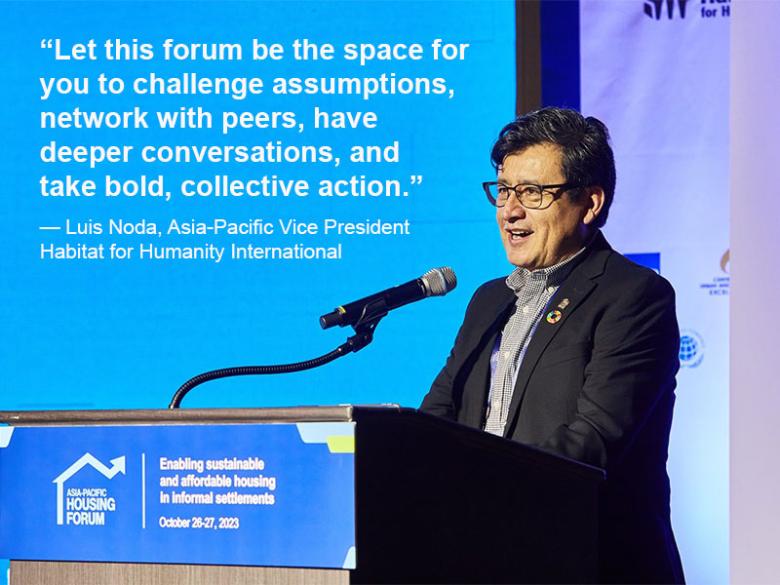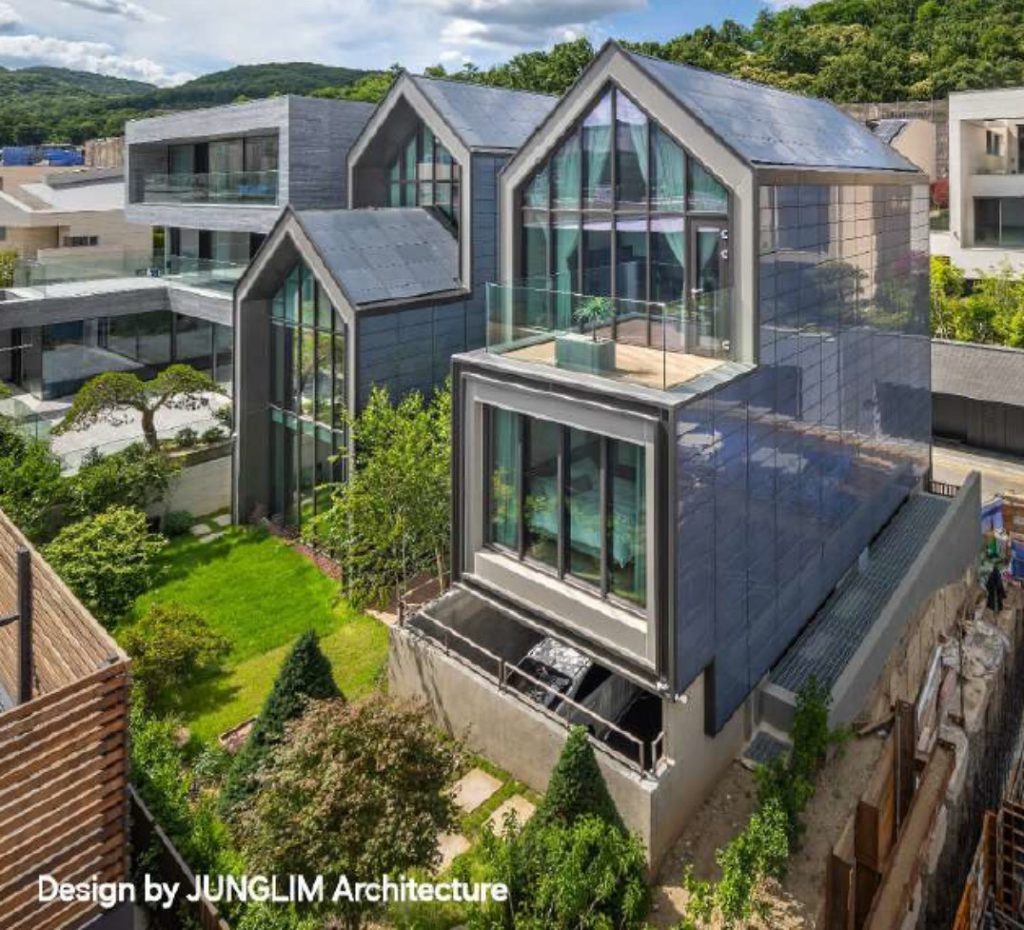Adapting towards climate resilience for affordable housing: Asia-Pacific Housing Forum 2023
FRIDAY, 10 NOVEMBER 2023 – On Thursday, 26 October 2023, around 300 stakeholders from the public sector and civil society gathered at the ninth Asia-Pacific Housing Forum (APHF) held in Suwon, South Korea to discuss and forge networks towards creating innovative housing solutions in the region.
The event spanned two days of discussion forums alongside the Housing Forum’s Innovation Awards, a Youth Assembly and a Business Assembly as part of the concurrently held Asia-Pacific Urban Forum.
In the opening plenary session, Jonathan Reckford, CEO of Habitat for Humanity International said: “Partnerships are a necessity as we face a global housing crisis, which has shown no signs of slowing down. Right now, 1.1 billion people are living in slums and other informal settlements, where they have very limited access to basic services such as clean water, sanitation, and electricity. They also lack land and property rights”.

Sustainable approaches for adequate housing
The first day of the Housing Forum was arranged under four topics: The Hidden Value of Informal Settlements; Affordable Greening Technologies and Climate Change Adaptation on a Household Level; Trends and Opportunities in Housing Microfinance Space in Asia-Pacific; and Leaving No One Behind in the Digital Era.
Meanwhile, topics discussed in the second day were: Policy Solutions for Urban Informal Settlements; Use of Financial Technology Solutions to Expand Access to Affordable Housing; and Influencing Reduction in Housing Deficit through Policy and System Change.
Adapting architecture across levels
The sessions highlighted how the housing deficit often compels the most disenfranchised populations to live in areas that are highly vulnerable to climate disasters. Dao Harrison, Senior Urban Specialist at the World Bank has worked with governments to provide financing and technical support for adequate and affordable housing, and she shared practical examples of Greening housing in Indonesia and Mongolia. Both countries are facing similar housing-related challenges, including housing affordability, disaster and climate change risks, and urban sprawl. She underlined that climate adaptation is required across various levels: household, neighbourhood and institutional.


According to Harrison, household-level adaptation entails self-built Green retrofits for low-income households, especially related to structural integrity. At the neighbourhood level, progressive urban densification needs to be done by ‘unlocking’ regulation that limits compact development. The government’s role is critical to provide technical and financial support, as well as pushing for progressive policies.
Hyojung Kim of JUNGLIM Architecture shared about the future direction of architecture in relation to climate change. “You may believe that [a temperature increase of] 1.5 degrees Celsius is not that serious, but it’s a big problem. The resilience of the planet will be lost,” Kim said. Korea aims to achieve its carbon neutrality target by 2050, but the standards of Zero Energy Building (ZEB) are more difficult to be achieved in the field of housing. One of the firm’s projects, LG ThinQ Home, acquired the first ZEB 1 rating in Korea, and incorporated technologies such as Building Integrated Photovoltaics (BIPV). Other projects like Eco House implemented passive and operable design solutions for resilience across seasons.


Similarly in Indonesia, Haryo Bekti Martoyoedo as the Director for Financing of Housing, Indonesian Ministry of Public Works and Housing, cited challenges to implement Green housing across the archipelagic nation, including a lack of socialisation to housing developers; no special incentives for building affordable and sustainable homes; limited Green building assessors; and lack of readiness from local governments to assess and issue green building certificates. As part of their socialisation and capacity building efforts, the government has engaged various companies in CSR programmes to build sustainable and affordable housing, such as the pilot project in Kuningan Regency, West Java Province, Green Panua Residence in Gorontalo Province and Gandus Land City in South Sumatera Province.
Awarding innovative housing solutions
From over 3,100 applications in the Housing Forum’s Innovation Awards, six finalists across three categories were selected to pitch to a live audience on the night of 26 October. The presentations detailed their initiatives, technologies and programmes to solve housing challenges for low-income communities. From the finalists, three winners were awarded at the event:
• Manila Housing Program by the City Government of Manila, Philippines, under the Policy: Public Sector Housing Solutions category. This housing programme encompasses disaster resilience, climate adaptation and social integration by emphasising mixed-income communities with amenities, preventing poverty concentration and ensuring sustainability.
• Kampung Susun Akuarium (Vertical Kampong) by Rujak Center for Urban Studies under the Program: Civil Society Housing Impact category. This project, which commenced in 2016, provided an innovative approach on redeveloping a settlement in North Jakarta where the residents had been forcibly displaced. Through advocacy, organising and other tactics in collective participation with residents, the Jakarta City Poor People’s Network and the Urban Poor Consortium, the settlement has been successfully redeveloped.
• Bandhu received the Sheltertech award under the Private Sector Technology category. The tech platform connects India’s blue-collar workers to jobs and affordable housing and making the rural-to-urban migration process more equitable for 300 million citizens.

Editor’s note: We would like to thank Habitat for Humanity for materials of the forum sessions and documenter notes.
FuturArc Prize 2024: Architecture for Life After … is open for entries that bring renewal after Climate Destruction and/or Endings scenarios! Click the banner below to read the full brief.


